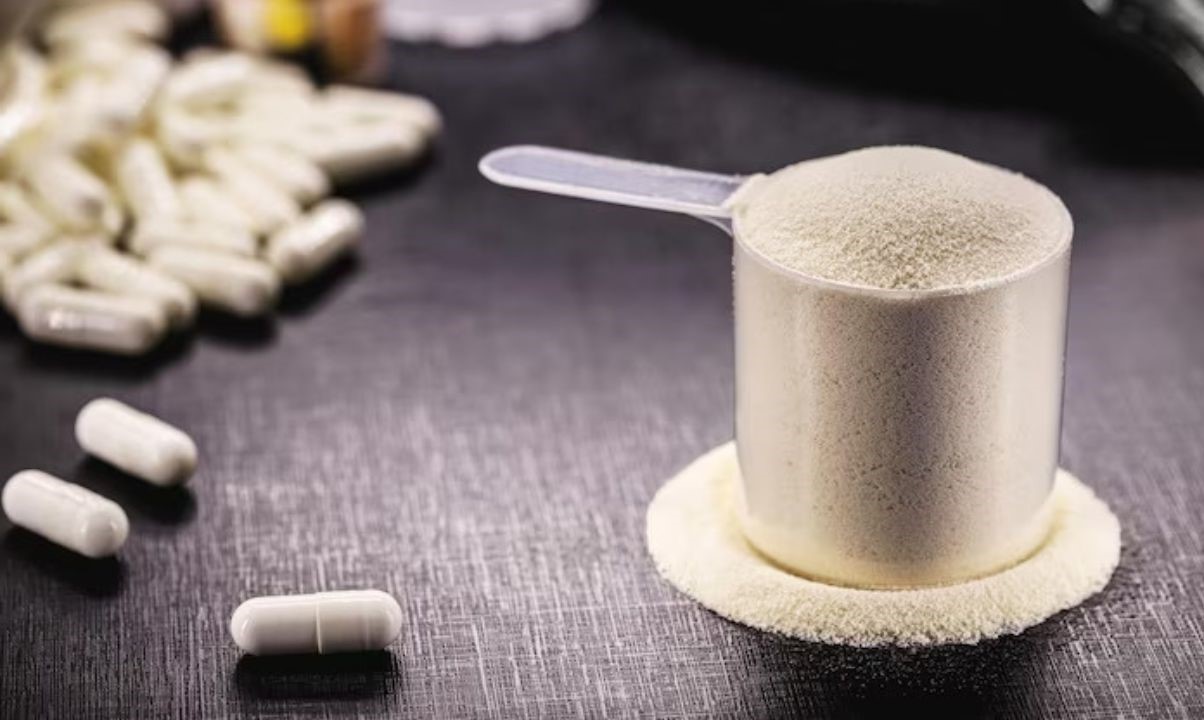
Chondroitin sulfate is a popular supplement often used to support joint health. But what exactly is it, and why do so many people turn to it for relief? Chondroitin sulfate is a naturally occurring substance found in the cartilage around joints in the body. It helps maintain the elasticity and strength of cartilage, which is crucial for smooth joint movement. Many people take it as a supplement to alleviate symptoms of osteoarthritis and other joint-related issues. But there's more to this compound than meets the eye. From its origins to its benefits and potential side effects, here are 50 facts about chondroitin sulfate that will give you a comprehensive understanding of this fascinating substance.
Key Takeaways:
- Chondroitin sulfate, found in joint supplements, helps reduce joint pain and inflammation. It also supports cartilage health by retaining water and inhibiting enzymes that break down cartilage.
- Chondroitin sulfate, derived from animal sources, offers benefits for osteoarthritis and joint function. However, it may cause mild digestive issues and allergic reactions in some individuals. Always consult a healthcare professional before starting any new supplement.
What is Chondroitin Sulfate?
Chondroitin sulfate is a naturally occurring substance found in the cartilage around joints. It's often used in supplements to support joint health. Let's dive into some fascinating facts about this compound.
- Chondroitin sulfate is a major component of cartilage, providing structure and holding water and nutrients.
- It helps cartilage retain water, which is essential for its elasticity and shock-absorbing properties.
- This compound is often derived from animal sources like cow cartilage, pig cartilage, and shark cartilage.
- It's commonly used in combination with glucosamine in supplements aimed at reducing joint pain and improving mobility.
- Chondroitin sulfate has been studied for its potential to slow the progression of osteoarthritis.
- Some studies suggest it may help reduce joint pain and inflammation.
- It is believed to inhibit enzymes that break down cartilage.
- Chondroitin sulfate is also thought to stimulate the production of new cartilage components.
- It is available in various forms, including capsules, tablets, and powders.
- Some topical creams and gels also contain chondroitin sulfate for localized relief.
Benefits of Chondroitin Sulfate
Chondroitin sulfate offers several benefits, particularly for those suffering from joint issues. Here are some key advantages.
- It may help reduce the symptoms of osteoarthritis, such as pain and stiffness.
- Some research indicates it can improve joint function and mobility.
- Chondroitin sulfate is thought to have anti-inflammatory properties.
- It may help slow the breakdown of cartilage in joints.
- Some studies suggest it can improve the quality of life for people with joint disorders.
- It is often used as a natural alternative to nonsteroidal anti-inflammatory drugs (NSAIDs).
- Chondroitin sulfate may help reduce the need for pain medications in some individuals.
- It is generally considered safe for long-term use.
- Some evidence suggests it may help with other conditions, such as interstitial cystitis.
- It is also being studied for its potential benefits in treating psoriasis.
How Chondroitin Sulfate Works
Understanding how chondroitin sulfate works can shed light on its effectiveness. Here’s a closer look.
- Chondroitin sulfate helps maintain the structural integrity of cartilage.
- It attracts water into the cartilage, keeping it hydrated and flexible.
- This compound inhibits enzymes that degrade cartilage.
- It stimulates the production of proteoglycans and collagen, essential components of cartilage.
- Chondroitin sulfate may help reduce inflammation by blocking certain inflammatory pathways.
- It can improve joint lubrication, reducing friction and wear.
- Some studies suggest it may help repair damaged cartilage.
- It is absorbed in the gastrointestinal tract and then distributed to joint tissues.
- The body can incorporate chondroitin sulfate into cartilage matrix.
- It may also have antioxidant properties, protecting cells from damage.
Sources of Chondroitin Sulfate
Chondroitin sulfate can be obtained from various sources, both natural and synthetic. Here are some common ones.
- Animal cartilage, particularly from cows, pigs, and sharks, is a primary source.
- Some supplements use chondroitin sulfate extracted from fish cartilage.
- Synthetic chondroitin sulfate is also available, though less common.
- It can be found in certain foods, such as bone broth and cartilage-rich cuts of meat.
- Some algae and seaweed contain compounds similar to chondroitin sulfate.
- Supplements are the most convenient and concentrated source.
- Quality and purity can vary between different brands and sources.
- It is important to choose supplements from reputable manufacturers.
- Some products combine chondroitin sulfate with other joint-supporting ingredients.
- Always check the label for the source and concentration of chondroitin sulfate.
Potential Side Effects and Considerations
While generally safe, chondroitin sulfate can have some side effects and considerations. Here’s what you need to know.
- Some people may experience mild digestive issues, such as nausea or diarrhea.
- Allergic reactions are rare but possible, especially with animal-derived supplements.
- It may interact with blood-thinning medications, increasing the risk of bleeding.
- People with shellfish allergies should be cautious, as some supplements may contain shellfish-derived ingredients.
- Pregnant or breastfeeding women should consult a healthcare provider before using chondroitin sulfate.
- High doses can lead to side effects like headache or dizziness.
- It is important to follow the recommended dosage on the supplement label.
- Long-term safety studies are still ongoing, but current evidence suggests it is safe for extended use.
- Always consult a healthcare professional before starting any new supplement, especially if you have underlying health conditions.
- Combining chondroitin sulfate with a healthy diet and regular exercise can enhance its benefits.
The Final Word on Chondroitin Sulfate
Chondroitin sulfate, a key player in joint health, offers numerous benefits. It helps maintain cartilage structure, reduces pain, and improves joint function. Found naturally in the body, it’s also available as a supplement. Many studies support its effectiveness, though results can vary. Some people experience significant relief, while others notice minimal changes. Combining it with glucosamine might enhance its effects.
Always consult a healthcare professional before starting any new supplement, especially if you have existing health conditions or take other medications. Understanding the potential benefits and limitations can help you make an informed decision. Chondroitin sulfate isn’t a miracle cure, but it can be a valuable part of a comprehensive approach to joint health. Stay informed, listen to your body, and choose what works best for you.
Frequently Asked Questions
Was this page helpful?
Our commitment to delivering trustworthy and engaging content is at the heart of what we do. Each fact on our site is contributed by real users like you, bringing a wealth of diverse insights and information. To ensure the highest standards of accuracy and reliability, our dedicated editors meticulously review each submission. This process guarantees that the facts we share are not only fascinating but also credible. Trust in our commitment to quality and authenticity as you explore and learn with us.


